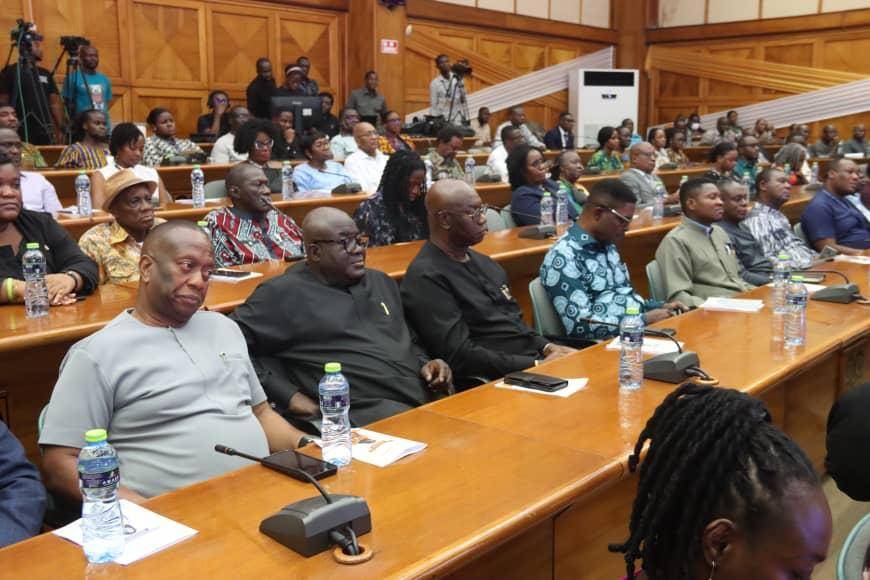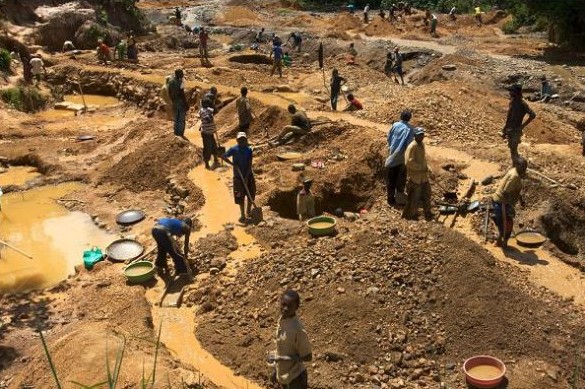ARTICLE AD
The Minister of Foreign Affairs and Regional Integration, Shirley Ayorkor Botchwey, has proposed six areas through which the Commonwealth could be repositioned to transform the economies of its member countries.
These areas are trade and investment; youth, education, skills, innovation and startups; mobility and labour markets; climate change; small states, and managing resources for an effective Commonwealth institution.

“Based on a community-wide approach to comprehensive actions in these areas, we can transform the economies of the countries in the Commonwealth, enable inclusive development and climate resilience, and respond to the expectations of the hundreds of millions across the Commonwealth for the democratic dividend, consistent with an ambitious vision of our Commonwealth values,” she said.
Ms Botchwey made this known on Friday in Accra, when she delivered a lecture shortly after an official announcement of her candidacy for the Secretary-General of the global body.
A statement from the ministry that had earlier announced her interest in the position said President Nana Addo Dankwa Akufo-Addo nominated her as Ghana’s candidate based on an understanding among members of the Commonwealth that its next Secretary-General would come from Africa.
A new Secretary-General of the 56-member organisation would be elected on October 22, 2024 at the Commonwealth Heads of Government Meeting (CHOGM) in Samoa to replace Baroness Patricia Scotland, a dual Dominican-British citizen, whose second and final tenure expires at the end of 2024.
The lecture, hosted by the Council on Foreign Relations-Ghana, was on the theme ‘a vision for a new commonwealth in a fast -evolving world.’
According to Ms Botchwey, the Commonwealth, boasting a population of 2.5 billion, emerges as a potent global entity poised to become the second most influential organisation globally after the United Nations.
She said its Charter provides a robust framework for fostering peace, prosperity, and cooperation, addressing diverse issues such as democracy, human rights, and environmental protection.
However, she said the organisation grapples with critical challenges including economic disparities, social mobility stagnation, and climate vulnerability, requiring adaptive measures to address the inadequacies in the current development framework and ensure inclusive growth.
Shedding light on her vision, Ms Botchwey said a Commonwealth-wide free trade agreement would reinvigorate economic growth through inclusive policies, emphasising development needs, labour mobility, and investments in both services and non-services sectors.
In the realms of youth, education, and innovation, she said the focus should be on leveraging technology to establish a Commonwealth-wide market for high-knowledge intensive innovation and services, addressing the digital gap and fostering innovation as key drivers of progress.
According to the minister, climate change initiatives within the Commonwealth involve a comprehensive strategy covering adaptation, sustainable energy, and a renewables revolution, emphasising a net-zero target by 2050 with a focus on global collaboration, finance mobilisation, and resilience building for small island developing states.
She said that there was the need to prioritise small states, focusing on resilience, inclusive development, and global representation and advocated a comprehensive mobility compact to address labour shortages by promoting safe migration.
“The Commonwealth is a powerful influence for good in the world and we must pledge ourselves to its service now and for the future”, she added.
BY JONATHAN DONKOR

 1 year ago
86
1 year ago
86 

